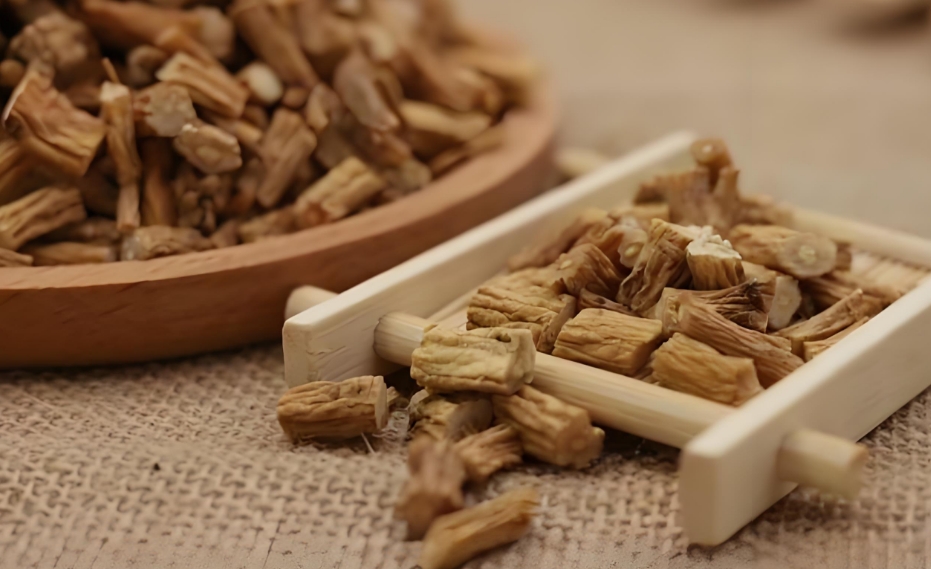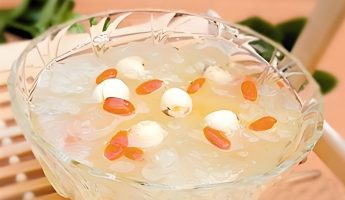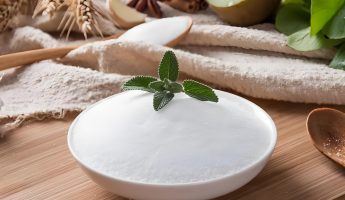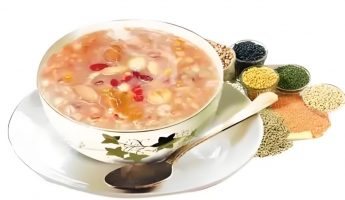Milk tea, beer, ice cream, can all things be infused with traditional Chinese medicine? Recently, “38 yuan per serving of traditional Chinese medicine ice cream is out of stock” has become a hot topic. This ice cream brand comes from Shanghai and has launched herbal flavored ice cream. “Bamboo Jasmine” can clear the heart and refresh the mind, “Eight Immortals Fruit” can stop phlegm and cough, “Ceylon Cassia Seed” can clear the liver and improve vision… Different flavors of ice cream correspond to different herbal health benefits, providing young people with another channel for “punk health”.
In recent years, the trend of “Chinese medicine+” in the catering industry has frequently attracted people’s attention. Nowadays, walking on the streets and alleys of many first – and second tier cities, one can find many shops adding traditional Chinese medicine elements to drinks such as milk tea, coffee, and fruit tea, adding health labels to attract consumers to try them out. Why are traditional Chinese medicine foods and drinks popular among young people? Is it an “intelligence tax” or a true health benefit? Is traditional Chinese medicine beverage a profitable business? What is the prospect of the bustling traditional Chinese medicine food and beverage industry, and what are the hidden problems that cannot be ignored?
The “Sheep Milk Health Milk Tea” focuses on dispelling dampness and promoting qi circulation, and contains medicinal herbs such as Poria cocos, cardamom, Peilan, and Coix seed; Under Yangqi, “it nourishes and warms the body, containing ingredients such as goji berries, red dates, and Dahongpao… The reporter saw that each drink on the menu has corresponding medicinal herbs and health benefits, and the price is generally within 20 yuan.
As a marketing gimmick, “Chinese medicine+” can easily become a “gust of wind”. After the wind has passed, the popularity has decreased, and whether it can attract consumers to repurchase has become the key to the sustainable operation of traditional Chinese medicine tea shops. Fu Yifan believes that traditional Chinese medicine tea drinks, as a new thing, also need to go through a process of gradual market recognition. However, traditional Chinese medicine tea drink shops often have to bear high rent and operating costs in the process of operation, which puts great pressure on the profitability of traditional Chinese medicine tea drink shops. Since last year, there has been a trend of traditional Chinese medicine clinic franchise stores nationwide. Many stores use herbal drinks from traditional Chinese medicine clinics as a franchise. Although some have done well, without a complete scientific operation system, most stores are difficult to survive.

Listed traditional Chinese medicine companies frequently layout “Chinese medicine+”
Behind the rise of traditional Chinese medicine food and beverages is the trend of consumption towards health preservation and youthfulness. The “China Better Life Survey” initiated by the National Bureau of Statistics and others in May last year showed that among the consumption rankings of young people aged 18-35, health and wellness ranked third. Public data shows that in 2023, the number of views on the topic of “health preservation” on Xiaohongshu reached 2.51 billion, with a total of 5.322 million new notes added.
The attention of young consumers to health preservation has given rise to a potential market for health and wellness consumption. According to the “Consumer Behavior Survey of China’s Traditional Chinese Medicine Tea Beverage Industry” released by iMedia Consulting, more and more consumers are paying attention to and trying traditional Chinese medicine tea drinks, and their willingness to purchase continues to rise. 75.47% of consumers said that they are more willing to buy traditional Chinese medicine tea drinks compared to traditional tea drinks. The Forward Industry Research Institute pointed out in the “2024 China Chinese Health Water Industry Development Trend Insight Report” that it is expected that the compound growth rate of the Chinese health water market will exceed 88% in the next 5 years, and the market size is expected to exceed 10 billion yuan by 2028.
Faced with this trend, multiple listed companies have actively carried out relevant layouts and launched products with traditional Chinese medicine health benefits.
For example, at the end of last year, Dong’e ass hide glue co named Naixue tea was upgraded to a new winter warming tea, “Naixue Dong’e ass hide glue milk tea”. Taking “health care” as the starting point, it includes five kinds of food materials, including golden mountain black tea, Dong’e ass hide glue, natural peach gum, tremella, red dates, etc., which triggered extensive discussion among consumers on the launch day.
Tongrentang launched a new retail format brand, “Zhima Health”, and launched a series of “health care coffee”, including medlar latte, motherwort rose latte, cinnamon cappuccino, and Luohanguo American style.
Zhejiang Zhenyuan received an investor survey in May this year and said that the company started with the development of health care products with the same origin of medicine and food, and developed health care products with the characteristics of traditional Chinese medicine culture. At present, there are “health tea”, “health cream”, “health wine”, “health drinks”, “health Tonic Diet”, “health medicine bath” and other products. The reporter also noticed that last year, Zhejiang Zhenyuan stated on the investor interaction platform that the company had launched multiple health tea and health cream products, such as Autumn Pear Cream, Yuping Qingrun Cream, Biwei Bao Cream, Lilac Monkey Head Mushroom Buddha Hand Tea, etc.
Last March, Baiyunshan’s parent company, Guangzhou Pharmaceutical Group, released its first herbal beer – Lingshuang Herbal Craft Beer. As a cross-border product innovation project between traditional Chinese medicine and craft beer, herbal beer is positioned to solve the development problem of beer that is not prone to gout. In August of that year, Guangzhou Baiyunshan Herbal Craft Beer (Guangzhou) Co., Ltd. was established. The company is wholly owned by Guangzhou Pharmaceutical Group and mainly engages in the manufacturing of liquor, beverages, and refined tea. The reporter found that Tianyancha has been taking frequent actions in beer trademark registration, beer bottle sticker appearance patent authorization, and other aspects since the beginning of this year.
Chinese medicine companies are entering the tea beverage market one after another, relying on their professional background and resource advantages in the field of traditional Chinese medicine to develop Chinese medicine tea beverage products with unique efficacy and good taste. This can not only create new revenue growth points for enterprises, but also enhance their brand awareness in the minds of young consumers.
However, opportunities and challenges always go hand in hand. According to analysts from iMedia Consulting, the current competition in the tea beverage industry is fierce, and there is a certain degree of homogenization, with a widespread phenomenon of internal competition. As a medicine, traditional Chinese medicine, even with minimal side effects, is still a concern for many consumers when it is integrated into tea drinks and made into daily beverages for long-term consumption. Data shows that in a survey conducted by Chinese consumers on the disadvantages of traditional Chinese medicine companies entering the tea beverage industry, 51.69% of consumers have doubts about the true efficacy of traditional Chinese medicine tea beverages and believe that their health benefits may not be as prominent as advertised; 47.94% of consumers believe that it is a three part poison of medicine, making it difficult to determine the harm of long-term use; 46.82% of consumers are concerned about the occurrence of fraud.
Industry insiders analyze that the layout of traditional Chinese medicine enterprises in the Chinese health track, which is close to young people, is a beneficial attempt to “rejuvenate the brand”. However, further exploration is needed in expanding the tea beverage category and enriching the consumption scenarios, to explore the medical efficacy and cultural background behind traditional Chinese medicine tea drinks. At the same time, market entities should strive to improve product quality, strengthen brand building, provide consumers with more reliable and healthy product choices, and jointly promote the healthy development of the industry.



